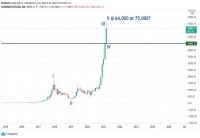|
Opalesque Industry Update - Commonfund Forum, currently being held in Orlando, Florida, released its annual survey data yesterday showing that institutional investor expectations for 2012 remain strong. Commonfund conducted its second annual Commonfund Investor Outlook Survey™ which gauges the sentiment of the more the 500 participants at the Commonfund Forum. This year data was collected from 222 institutional investors whose combined assets were $239 billion. Commonfund is a prominent investment manager for institutional investors including pension plans, endowments and foundations, among other investors. Overall, investor expectations for 2012 are reasonably strong with an average forecast for the S&P 500 Index of 8.3 percent and a median forecast of 9.0 percent. This was almost unchanged from last year’s average forecast of 8.55 percent and median forecast of 9.0 percent. Over a three-year period, performance expectations are still strong with an average annual forecast for the S&P 500 Index over the next three years of 6.8 percent, and 72 percent of responses in the range of 5.0 to 8.0 percent. This was slightly lower than last year’s average forecast of 7.3 percent and median forecast of 7.5 percent. “The positive expectations for the markets and asset allocations indicate that participants continue to be positive about 2012 reflecting the continued improvement in the U.S. and much of the world economies,” said Verne Sedlacek, President and CEO of Commonfund. “Increased allocations to emerging market equities, natural resources, and commodities extend last year’s strong outlook and the recovery from 2008-2010.” Only 44 percent expect commodities (as measured by the Dow Jones – UBS Commodities Index) to outperform the S&P 500 Index, compared with 61 percent last year. 30 percent expect hedge funds (as measured by the HFRI Fund Weighted Composite) to outperform, similar to last year. Bonds increased. Only 37 percent expect high yield bonds to lag the S&P 500 Index compared with 49 percent last year. 84 percent expect the Barclay’s Aggregate Bond Index to underperform the S&P Index over the next three years vs. 91 percent last year (only 3 percent expect it to outperform this year vs. 4 percent last year). Relative to the three-year performance expectation for the S&P 500 Index, 75 percent of respondents expect the MSCI Emerging Markets Index to outperform, a slight drop from 79 percent last year. 22 percent expect the MSCI – ex US (developed equity markets) to outperform this year.
U.S. Treasury Returns to Drop
Portfolio Performance and Tail Risks The most significant tail risks participants reported relative to portfolio performance over the next 3-years include: EU Crisis (32%); Washington gridlock on US debt (23%); Oil price jump (16%); US recession (4%); China slowdown (2%); and Other (24%).
Asset Allocations 53 percent of respondents said they would increase allocations to emerging market equities, up from 40 percent last year; while only 1 percent say they would decrease allocations this year. Similarly, 44 percent cited that they would increase allocations to natural resources, up slightly from 43 percent last year. 40 percent would increase allocations to venture capital and private equity; up from 32 percent last year. 37 percent said they would increase allocations to real estate, up from 27 percent last year. 34 percent said they would increase allocations to commodities, down slightly from 37 percent last year. 31 percent said they would increase allocations to distressed debt/high yield, up significantly from 18 percent last year. 28 percent said would increase allocations to hedge funds, up slightly from 27 percent last year. 6 percent said they would increase fixed income allocations, up from 3 percent last year.
Areas of Greatest Concern
(press release)
About Commonfund fg |
Industry Updates
Institutional investor expectations remain strong in 2012 according to Commonfund Investor Outlook Survey
Thursday, March 15, 2012
|
|





 RSS
RSS







